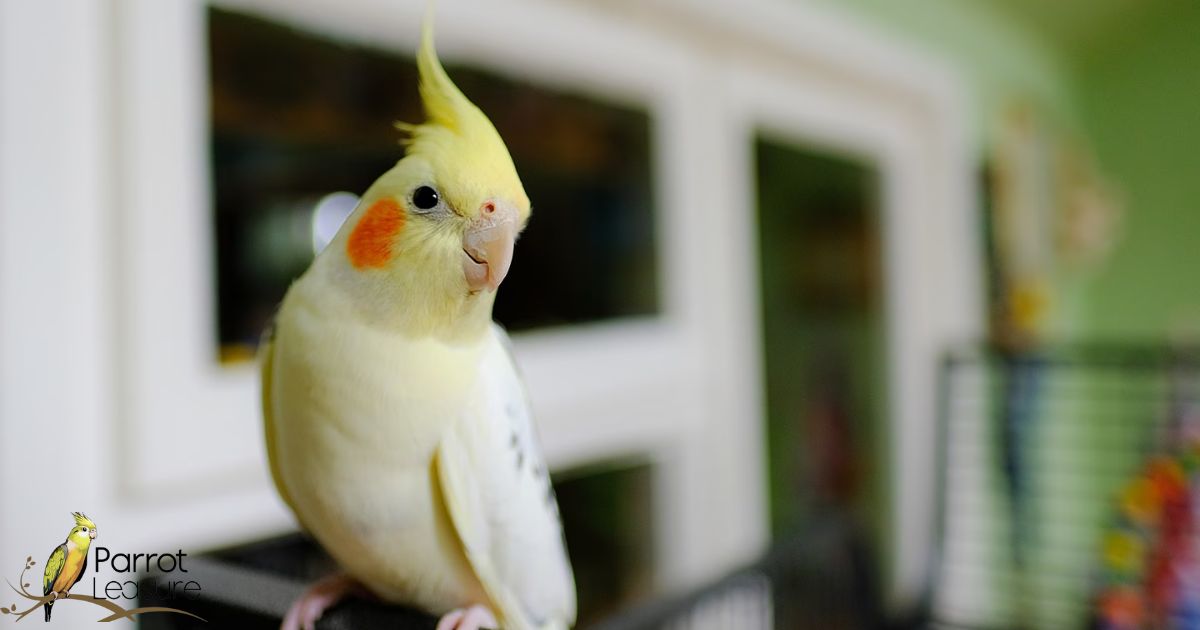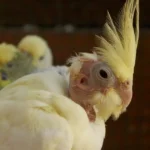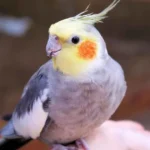Cockatiels are small parrots native to Australia. They are known for their friendly nature and distinctive crest. These birds have become popular pets due to their manageable size and charming personalities. Cockatiels can live up to 20 years with proper care and attention.
Is a Cockatiel a Good Pet? Discover the joys of owning these delightful creatures! Cockatiels are affectionate companions that can bring laughter and warmth to your home. Their gentle chirps and playful antics can brighten even the gloomiest days. Don’t miss out on the chance to bond with these feathered friends.
Cockatiel owners often uncover surprising secrets about their pets. These birds can learn to mimic whistles and even simple tunes. They communicate through body language, using their crests to express emotions. Cockatiels also form strong bonds with their owners, often seeking attention and affection.
The Cockatiel’s Personality: A Blend of Charm and Intelligence
Cockatiels are known for their friendly and outgoing nature. They are curious birds that enjoy interacting with their owners. These intelligent creatures can learn simple tricks and even mimic whistles or tunes. Their playful antics and gentle demeanor make them entertaining companions.
Despite their small size, cockatiels have big personalities. They express emotions through their distinctive crest movements. Cockatiels are generally calm but can become excited during playtime. These social birds thrive on attention and often form strong bonds with their human families.
Cockatiel Care Basics: What Every Prospective Owner Should Know
Cockatiel care basics start with providing a spacious cage, at least 20x20x28 inches. Line the cage with safe, paper-based bedding and include various perches of different diameters. Offer a balanced diet of high-quality pellets, fresh vegetables, and small amounts of fruits. Ensure fresh, clean water is always available.
Cockatiels need daily interaction and mental stimulation. Provide toys that encourage foraging and physical activity. Keep the cage in a warm, draft-free area away from direct sunlight and kitchen fumes. Regular vet check-ups, nail trimming, and wing clipping are essential for maintaining your cockatiel’s health and safety.
The Cockatiel’s Habitat: Creating The Perfect Home
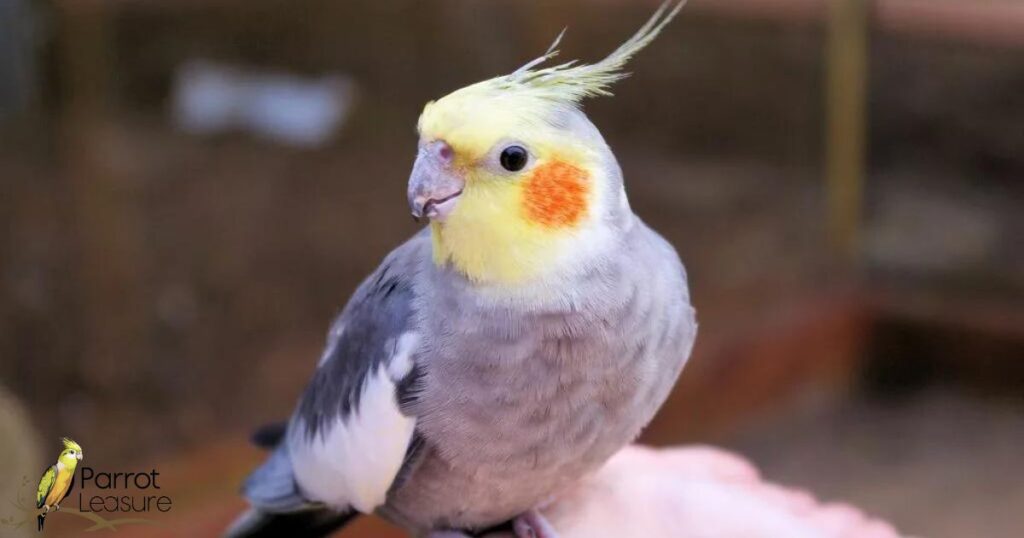
Cockatiels thrive in spacious cages at least 24 inches wide, 24 inches deep, and 30 inches tall. The cage should have horizontal bars for climbing and perches of varying diameters. Place the cage in a warm, draft-free area away from direct sunlight and cooking fumes. Ensure the room temperature stays between 65-80°F (18-27°C) for optimal comfort.
Equip the cage with food and water dishes, toys for mental stimulation, and a cuttlebone for beak maintenance. Include a variety of perches made from natural wood branches. Provide a shallow dish for bathing and misting opportunities. Clean the cage daily and perform a deep clean weekly to maintain a healthy environment for your cockatiel.
Nutritional Needs: Feeding Your Cockatiel for Optimal Health
Cockatiels require a balanced diet for optimal health. Their main food should be high-quality pellets, comprising about 70% of their diet. Fresh fruits and vegetables should make up 20-30% of their meals. Offer dark, leafy greens, carrots, and apples, but avoid avocado and chocolate, which are toxic to birds.
Provide fresh, clean water daily for your cockatiel. Supplement their diet with small amounts of seeds as treats, but don’t overdo it. Cuttlebone or mineral blocks are essential for calcium. Avoid feeding your cockatiel human food, especially those high in salt or fat.
Is a Cockatiel a Good Pet?
Cockatiels are popular pets known for their friendly personalities and manageable size. They are intelligent birds that can learn tricks and mimic whistles, providing entertainment and companionship. Cockatiels are relatively low-maintenance compared to larger parrots and can form strong bonds with their owners.
They adapt well to household environments and can live happily in a spacious cage. Before deciding to get a cockatiel, consider their needs carefully. They require daily interaction, a varied diet, and regular veterinary care.
Cockatiels can be vocal, especially in the morning and evening, which may not suit all living situations. With a lifespan of up to 20 years, they are a long-term commitment that demands consistent care and attention.
You May Also Like: What Types of Cockatiel Mutations Are There?
Cockatiel Training: Tips for a Well-Behaved Bird Companion

Cockatiel training requires patience and consistency. Start with simple commands like “step up” to build trust. Use positive reinforcement, offering treats and praise for desired behaviors. Keep training sessions short, around 5-10 minutes, to maintain your bird’s interest and focus.
Incorporate training into daily routines for best results. Teach your cockatiel to return to its cage on command for safety. Use a clicker or specific word to mark correct behaviors. Remember that each cockatiel has a unique personality, so tailor your approach to suit your bird’s temperament and learning style.
The Social Nature of Cockatiels: Bonding with Your Pet
Cockatiels are highly social birds that thrive on interaction. They form strong bonds with their owners and enjoy being part of family activities. These feathered companions often seek attention through gentle chirps and whistles. Regular handling and quality time are crucial for a cockatiel’s emotional well-being.
Bonding with your cockatiel involves patience and consistency. Offer treats from your hand to build trust and positive associations. Engage your pet with toys and games to stimulate their mind and strengthen your connection. Remember, each cockatiel has a unique personality, so tailor your approach to suit your bird’s preferences.
Cockatiel Health: Common Issues and Preventive Care
Cockatiels can face several health issues. Respiratory problems are common, often caused by drafts or poor air quality. They may also suffer from nutritional deficiencies if fed an improper diet. Parasites, such as mites, can infest their feathers and skin. Regular check-ups with an avian vet can help catch these issues early.
Preventive care is crucial for cockatiel health. Provide a balanced diet rich in vegetables and specially formulated pellets. Keep their cage clean and free from drafts. Offer regular baths to maintain feather health. Monitor your bird’s behavior and droppings for signs of illness. Trimming nails and beaks when necessary can prevent overgrowth and associated problems.
The Cockatiel’s Lifespan: Long-Term Commitment Considerations
Cockatiels can live 15-25 years with proper care. They require a long-term commitment from owners. Daily attention, a healthy diet, and regular vet checks are essential. Consider your lifestyle before adopting a cockatiel.
These birds form strong bonds with their owners. They need mental stimulation and social interaction. Cockatiels can be noisy and messy at times. Prepare for a decade or more of dedicated care and companionship.
Cockatiel Costs: Budgeting for Your New Pet
Cockatiels typically cost $50 to $150 to purchase. Cages range from $50 to $200, depending on size and quality. Food expenses average $10 to $20 per month. Toys and perches may cost an additional $20 to $50 initially.
Annual vet checkups cost around $50 to $100. Emergency care can exceed $500 in some cases. Grooming supplies like nail clippers are relatively inexpensive. Budget for unexpected expenses to ensure your cockatiel’s health and happiness.
Cockatiel Compatibility: Are They Right for Your Household?
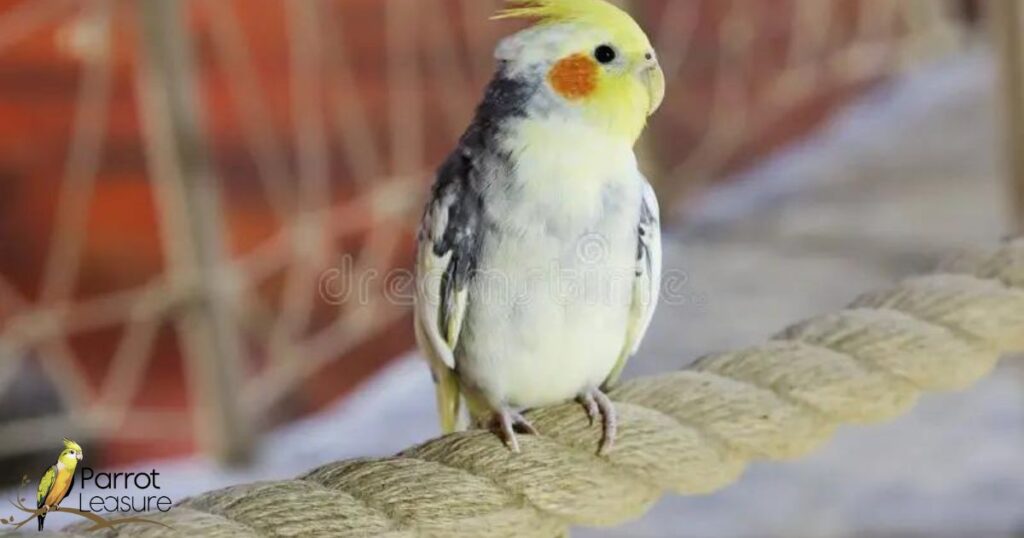
Cockatiels are friendly, social birds. They make great pets for many households. These parrots are relatively quiet and low-maintenance. They can bond closely with their owners.
Cockatiels need daily interaction and attention. They require a spacious cage and a varied diet. Regular veterinary care is essential for their health. Consider your lifestyle before getting a cockatiel.
FAQ’s
Do cockatiels like to be held?
These little birds have a reputation as gentle and docile. They are very affectionate and often like to be petted and held.
Are cockatiels hard to take care of?
Cockatiels are low maintenance, especially compared to other birds, but it is important to note how much attention and variety they require to live long healthy lives.
Should I cover my cockatiel at night?
It is optional to cover bird cages at night. Sometimes a bird prefers it, sometimes it is needed to limit daylight when you have a bird who won’t stop laying eggs.
Can I keep my cockatiel in AC?
It’s important to keep your bird’s cage and perches away from air conditioners, vents, and cold drafts.
Conclusion
Cockatiels are wonderful pets for the right owners. They offer companionship and entertainment with minimal noise. These birds are relatively easy to care for but still need daily attention. Cockatiels can live up to 20 years, so they’re a long-term commitment.
Consider your lifestyle, living space, and ability to provide care before bringing one home. If you can meet their needs, a cockatiel can be a delightful and rewarding pet.
